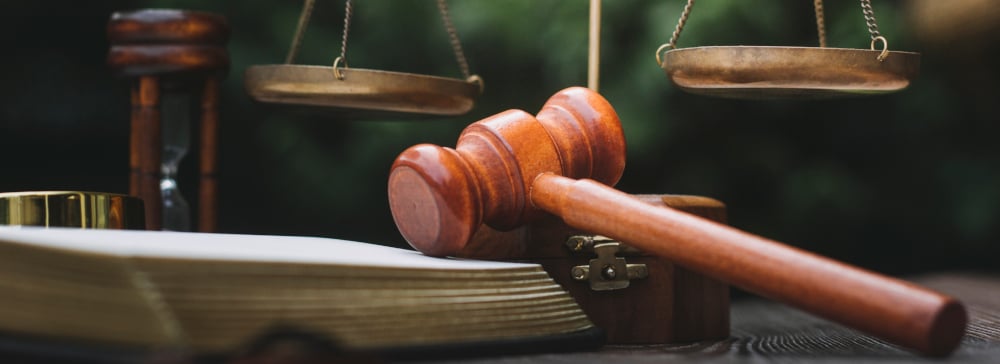Table of Contents

The majority of car accident cases will settle out of court before trial. However, these settlements still require negotiation based on the relative strengths, weaknesses, and potential outcomes should the case go to trial. In addition, many other factors affect a settlement, such as the type of jurisdiction, the particular types of injuries sustained, and the fact patterns of the accident.
A Ft. Lauderdale car accident lawyer at Kogan & DiSalvo can offer legal advocacy and local context to your accident and help determine whether a particular offer is right for you. When you need a full-service law firm that takes cases on a contingency basis, you can depend on our team.

A settlement is an official out-of-court agreement that resolves a legal dispute without requiring a judgment. The most common cause of action for car accidents is negligence. In this type of case, a settlement will typically discharge some or all of the liability of one or several parties in exchange for compensation. It usually ends with a dismissal once the settlement is filed with the court or with a promise that a case will not be filed.
While this is typically the end of the matter–occasionally, parties will not abide by the agreement. In that case, additional action may be required to enforce the settlement.

Many factors will determine the value of a settlement, including the quality of the arguments made by each side. These factors are often unique to the case but can include the following:
Moreover, the issue of liability will also be a central factor in car accident compensation. The term for dividing liability between parties is known as comparative negligence, and Florida is a modified comparative negligence jurisdiction. This means that compensation can only be recovered if the plaintiff is found to be 49% or less at fault for their accident. For example, if a court determines that a plaintiff is 80% at fault for their injury, they would not be able to recover compensation.
An attorney will know how to analyze your case based on previous experience and local norms. It will also allow them to determine the value of a settlement offer and the likelihood of getting a better one before trial. They may have struck deals with the same insurance companies before and will have a better understanding of their process. This can include whether that particular insurance company prefers to spend more money on larger settlements, or try to reduce, delay, and deny in litigation.

The settlement process varies from case to case – for example, some cases will require a lawsuit to be filed to preserve it against the statute of limitations. Other cases may be negotiated and settled within a few weeks of an accident. It will ultimately depend on where your case currently is and the nature of your losses.
The first step toward a settlement is to contact your insurance company. Florida is a “no-fault” state, which means that Florida law requires a certain amount of coverage that compensates accident victims regardless of who is at fault. Next, if the accident involves a death, serious injury, or property loss greater than $500, a lawsuit against the at-fault driver can be considered. This potential for a lawsuit brings parties to the negotiating table for a settlement.
Once the sides have reached out, they begin making offers and counteroffers. However, this can also be delayed depending on the injuries. For example, an accurate diagnosis of a traumatic brain injury or spinal cord injury may take more time. This can also be true of property damages, such as a car that requires more repair than an original estimate. All of the above can factor into determining the total cost of medical treatment, rehabilitation, disability, and other relevant compensation factors.
Once the sides have come to an agreement, this will be signed by both parties. If a lawsuit has been filed with the court, the agreement will be filed to end the case.

There are several advantages and disadvantages to choosing a settlement over litigation. Sometimes, receiving a judgment is often the best chance at the highest payout. However, there can be risks, expenses, and long delays associated with going to trial that often make settlements the best option.
In addition, there is always uncertainty associated with litigation–many factors, i.e., the judge’s or jury’s attitude, will be mostly out of the hands of either party. While a dedicated personal injury attorney can discuss probabilities for liability and potential compensation, there are no guarantees.
The next advantage of settlement is the timeline—it is faster than litigation. Plaintiffs who hold out longer and threaten litigation against an opposing party–not offering an adequate settlement–can often get better deals. However, this strategy may require significantly more time than accepting a more modest offer.
At this point, obtaining a sure but more modest payout in a shorter term can be weighed against a longer timeline with a bit more risk and aggressive negotiations that may require additional evidence. It is a personal decision that varies from client to client. While an attorney can advise, the ultimate decision is up to the client.

Attorneys are invaluable in car accident cases–they can help you gather initial evidence, calculate the damages in your case, and negotiate for the largest possible settlement the law affords. The car accident settlement attorneys at Kogan & DiSalvo have extensive experience in the courts of Broward County. Schedule a free consultation to discuss the relative strengths of your case—and since we work on a contingency fee basis, you will not pay attorney’s fees unless we win compensation for your injuries. We look forward to hearing from you.
If you are injured and unable to come to us,
our attorney will come to you - there is no charge for us to do so.